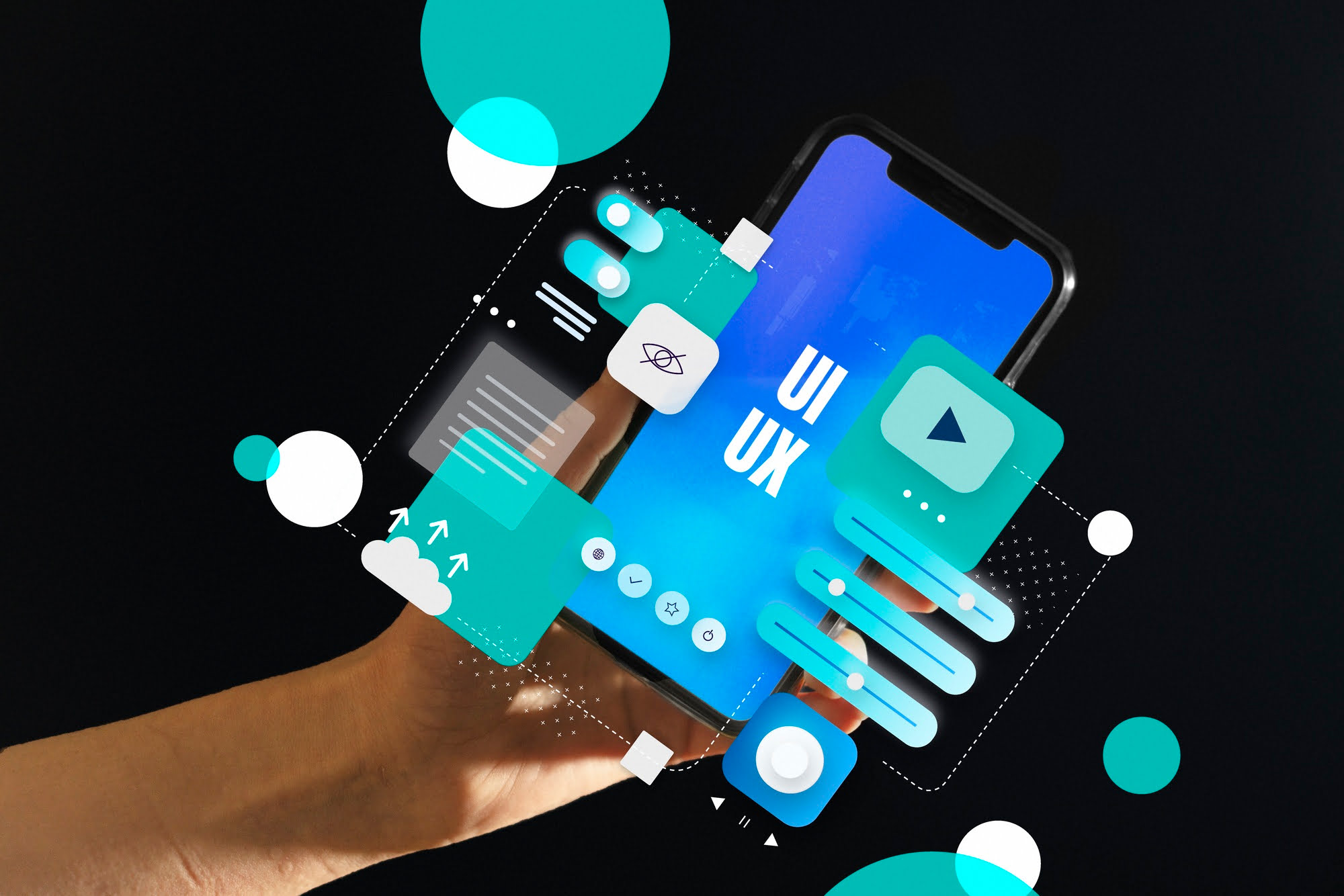
Mobile apps have become an inseparable part of our daily lives. From hailing rides to managing finances, these digital tools offer incredible convenience. But what happens when you encounter a roadblock within an app? That's where exceptional customer service comes into play.
As an industry professional, I’ve observed that users often equate the speed and quality of customer service with the overall value of the app. A quick response time can be the deciding factor in whether a user stays or leaves.
Read More: Mobile app development services in USA
Why Prioritizing Mobile App Customer Service Matters
A study found that 77% of users churn after just one bad mobile customer experience. If users hit roadblocks within your app and need more helpful and timely support, they're more likely to uninstall it and seek out a competitor. Here's a closer look at why prioritizing customer service is essential for mobile apps:
When users know they can readily access help when needed, they're more likely to trust your app and develop brand loyalty. This fosters a positive user experience, which is key to long-term success. Increasing customer retention by 5% can boost your profits by 25-95%.
Customer service interactions serve as a treasure trove of information about mobile app customer experience and pain points. These insights are invaluable for improving the app's usability and functionality. By addressing user feedback, you can continuously refine the app to better meet their needs.
Positive customer service experiences often translate into positive reviews and ratings on app stores. These glowing reviews can attract new users, propelling your app's growth. Studies have shown that positive reviews can increase conversion rates by up to 15%.
The sheer volume of available customer experience apps means that users are spoiled for choice. They know that if one app doesn’t meet their expectations, several others are waiting to be downloaded. My experience has taught me that the key to standing out in such a crowded market is not just the quality of the app itself, but the support system that surrounds it. An app with robust customer service is more likely to build a dedicated user base.
Read More: Mobile app development company

Understanding the Unique Challenges of Mobile App Customer Service
Providing customer service for mobile apps presents unique challenges compared to traditional desktop software. Here are two main hurdles to consider:
Mobile device screens are inherently smaller, making it difficult to display a lot of information at once. This can pose a challenge for users trying to find the help they need within the app. To address this, prioritize clear and concise information architecture, and leverage icons and intuitive design elements.
Diagnosing technical problems on a mobile device can be tricky. Unlike a computer, users might struggle to articulate the exact issue, especially if it's visual or functionality related. Their descriptions might be vague or lack crucial details to pinpoint the problem efficiently. Train your customer service representatives to actively listen, ask clarifying questions, and use deductive reasoning to identify the root cause of the problem.
Strategies for Effective Mobile App Customer Service
Now that we've addressed the challenges, let's delve into actionable strategies you can implement to provide exceptional mobile app customer service:
The best way to minimize the need for customer service is to create an app that's intuitive and user-friendly from the get-go. This includes a clean and consistent interface, clear and concise instructions throughout the app, and well-placed buttons that are easy to navigate. By prioritizing a user-centric design, you can empower users to complete tasks independently, reducing the reliance on customer service.
Don't restrict your users to a single method of obtaining help. Provide a variety of support channels to cater to different user preferences and situations:
Comprehensive FAQ Section (Self-Service)
A well-organized FAQ section with clear and concise answers to frequently encountered questions can resolve many user issues without requiring direct contact with customer service representatives. Here, anticipate common problems and provide step-by-step instructions for resolving them. Leverage tools like AI-powered search to make it easy for users to find the information they need.
Live Chat Functionality
Live chat allows users to connect with a customer service representative in real-time for quick problem-solving. This is ideal for situations where users need immediate assistance or prefer a more interactive approach to resolving an issue.
Email Support
For more complex issues that require detailed explanations or asynchronous communication, email support is a valuable option. This allows users to provide a comprehensive description of the problem and any relevant screenshots or attachments, enabling customer service representatives to investigate and provide tailored solutions thoroughly. Email support is also beneficial for situations where a documented record of the interaction is crucial, such as for billing inquiries or technical troubleshooting that requires following specific steps.
Don't underestimate the power of in-app help features. These built-in resources can significantly enhance the user experience:
Interactive Tutorials
Short, guided walkthroughs can equip users with the knowledge to navigate the app's features effectively. These tutorials can be particularly helpful for onboarding new users and familiarizing them with the app's core functionalities. Consider using microlearning techniques to deliver information in bite-sized chunks that are easy to digest and retain.
Context-Sensitive Help
Providing relevant help content based on what the user is doing within the app can be incredibly useful. Imagine a scenario where a user is struggling with a particular feature. Context-sensitive help can automatically display relevant instructions or troubleshooting tips right on that specific screen, offering immediate guidance without requiring users to navigate away from their task.
Personalize the Support Experience
A little personalization can go a long way in creating a positive customer service interaction. Here are some ways to personalize your approach:
Address users by name whenever possible
This small touch demonstrates that you see them as an individual and value their interaction.
Review past interactions and preferences to tailor your approach
If a user has contacted customer service before, referencing their past issue and how it was resolved can improve efficiency and demonstrate that you care about their experience.
Adjust your communication style to suit the user's needs
Some users might prefer a formal tone, while others appreciate a more casual and conversational approach. By reading the user's communication style, you can adjust yours to create a more comfortable and productive interaction.
Read More: Mobile app development services company

Additional Tips for Mobile App Customer Service Excellence
Here are some additional tips to elevate your mobile app customer service to new heights:
Time is of the essence. Strive to respond to customer inquiries as quickly as possible. Setting clear expectations for response times can also manage user frustration. Let users know the typical wait time for a response via live chat or email.
Actively solicit feedback from your users through surveys, app rating and review sections, and social media channels. This feedback is a goldmine of information! Use it to identify areas for improvement and make your app even better. Consider using in-app surveys that are triggered by specific user actions or after completing a task. This can provide targeted feedback on specific features or functionalities.
Analyze data from customer service interactions to gain valuable insights. This data can help you identify common customer pain points, improve your FAQs to address frequently encountered issues, and prioritize bug fixes and app updates to address recurring problems.
The Future of Mobile App Customer Service
The technological landscape is constantly evolving, and customer service is no exception. Here are a couple of emerging trends that might shape the future of mobile app customer service:
Chatbots are AI-powered virtual assistants that can answer basic user questions and resolve simple issues. As chatbot technology advances, they may play an increasingly important role in mobile app customer service by providing 24/7 support and streamlining the resolution of common problems.
AR technology has the potential to revolutionize how customer service is delivered for mobile apps. Imagine a scenario where a customer can use their phone's camera to scan an error message and receive instant AR-powered instructions on how to fix the problem. AR can provide a more interactive and intuitive way to troubleshoot issues and guide users through solutions.
Keeping Your Mobile App Users Happy
By prioritizing user experience, offering multiple support channels, and leveraging helpful features like FAQs and in-app tutorials, you can create a positive customer service experience for your mobile app service. Remember, the happier your users are, the more likely they are to stick around and become loyal fans of your app. In addition to the strategies mentioned above, here are some other general customer service best practices to keep in mind:
- Be patient and understanding: Sometimes users can be frustrated when they encounter problems. Listen to their concerns and do your best to empathize with their situation.
- Be clear and concise in your communication: Avoid using technical jargon and explain things in a way that is easy for users to understand.
- Follow through on your commitments: If you tell a user you're going to do something, make sure you do it.
By following these tips, you can ensure that your mobile app customer service is a positive experience for everyone involved. This will contribute to the overall success of your app and keep your users engaged and happy.
Read More: Mobile app development services


